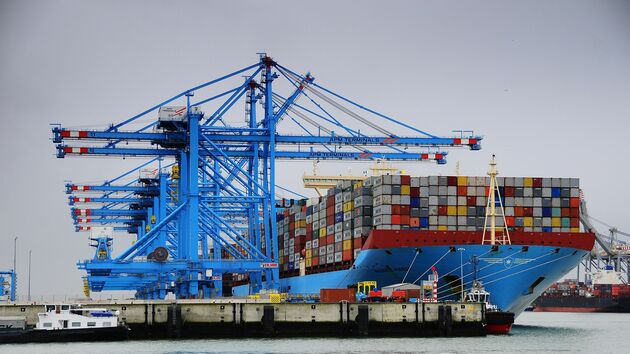Artificial intelligence is undoubtedly a popular topic nowadays, with an increasing number of applications in many industries and processes. We are all familiar with some of its most popular applications, such as voice and image recognition, however, its relation to logistics is not as well known to the public. According to a study from IBM, 46% of supply chain executives anticipate that AI a will be their greatest area of investment in the coming years (Butner & Lubowe, 2017). But how exactly is AI impacting logistics, and what are the benefits of it?
Logistics is a part of the supply chain process concerned with the movement of resources such as goods and supplies from one location to another. It involves not only cross company B2B logistics, but also internal logistics and deliveries to the customer. For this movement of resources, different transportation vehicles are used, such as trucks, ships, containers, and planes, which all emit high greenhouse gas rates. In 2015, the CO2 emissions from logistic transport accounted for 21.7% of the total of CO2 emissions.(Vidová et al., 2012). Therefore, making the logistic process more efficient is key for improving its sustainability. How can AI help with this?
Logistics is getting smarter every day with the incorporation of sensors and GPS in most transportation devices. Data is getting collected throughout the entire supply process, enabling companies to gather real time information on the location of their product, the transportation issues, and the delivery status among others. But not only the system is internally connected: companies are increasingly involving the clients in these systems to ensure better customer experiences (Chmielewski et al., 2021). For example, the Port of Rotterdam implemented in 2020 an application for customers that tracks ship containers and determines expected arrival and departure times for vessels (Port of Rotterdam, 2020.). While this type of tracking might seem basic in B2C logistics, such as when tracking a package from Amazon, this kind of application is still not widespread in B2B logistics.

With all the gathered data, AI is helping companies to take decisions about real time route optimization and trip combinations to ensure efficient and less polluting shipments, while also making deliveries faster. It is also helping to forecast demand in order to better optimize vehicles and operation costs, and to automate warehouses for the reception and sending of the deliveries.
In a sector where fast decision making is key for smooth operation, the support of AI is bringing improved efficiencies in a process that was usually based on history-based forecasting, shifting it to a prediction-based system of orders and issues. This end-to-end approach will hopefully help improve the planning and performance of logistics, ultimately reducing fuel consumption and optimizing fleet routes. (Tim Gaus et al., 2018).
References:
Butner, K., & Lubowe, D. (2017). AI is reshaping the supply chain. In IBM Institute for Business value. https://www-01.ibm.com/common/ssi/cgi-bin/ssialias?htmlfid=GBE03836USEN
Cmielewski, J., Daher, M., & Ghazal, O. (2021). Intelligent automation in transportation. Deloitte Insights. https://www2.deloitte.com/xe/en/insights/focus/transportation/the-role-of-intelligent-automation-in-the-movement-of-goods.html
Port of Rotterdam Authority introduces track & trace containers | Port of Rotterdam. (2020). Retrieved October 6, 2021, from https://www.portofrotterdam.com/en/news-and-press-releases/port-rotterdam-authority-introduces-track-trace-containers
Tim Gaus, Ken Olsen, & Mike Deloso. (2018). Advanced Artificial Intelligence and Supply Chain Planning. Deloitte Insights. https://www2.deloitte.com/us/en/insights/focus/industry-4-0/artificial-intelligence-supply-chain-planning.html
Vidová, H., Babčanová, D., Witkowski, K., & Saniuk, S. (2012). Logistics and Its Environmental Impacts. May 2016, 1007–1014. https://doi.org/10.3846/bm.2012.129



